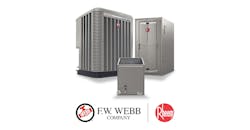UPDATE! On Dec. 16, Congress re-enacted the provisions that expired on
December 31, 2013 mentioned in this article for 2014 ONLY [through 12/31/14] so you have approximately two more weeks from Dec. 16 to act. Nothing else has changed except the expiration date of those provisions. They've essentially been brought back for 2014
SEE THIS ARTICLE IN FORBES FOR ADDITIONAL INFORMATION
Tax planning in 2014 is more important than it has been in a long time. This is because many tax provisions you may be familiar with from prior years expired December 31, 2013. More are set to expire this December 31st. There are also some complicated tax laws expanding or taking effect in 2014. Let’s take a look at some of the changes that may impact your personal and/or business tax return.
Many tax provisions you may be familiar with from prior years expired December 31, 2013. More are set to expire this December 31st.
Bonus Depreciation — The ability to take an additional deduction of 50% of the cost of qualifying property in the year in which the property is placed into service. This has expired.
Section 179 Expensing — This tax break did not expire. However, it was drastically reduced back down to levels not seen since 2002. In 2013, you could expense up to $500,000 of qualifying property purchased during the year. In 2014, that amount dropped to $25,000.
Built-In Gains (BIG) Recognition Period — The built-in gains rules state if a C-Corporation converts to an S-Corporation there is a period of time in which that converted company must hold the assets they had when they converted from a “C” to an “S.” If the S-Corporation sells or exchanges any of those assets during the holding period, they are subject to a 35% tax (the maximum corporate tax rate) on the “built-in” gains of the assets. The holding period through December 31, 2013 was only 5 years. In 2014, it has reverted back to the original 10-year holding period. (See end of article for information on “C” and “S” corporations.)
Final regulations issued by the IRS effective this year related to capitalization and depreciation have turned the world of expensing and depreciating on its head!
Personal Energy Credit (Internal Revenue Code Section 25C) — This credit was equal to 10% of new qualifying residential energy efficient equipment property with a maximum credit of $500. Types of property included: gas & electric water heaters, central air conditioners & heat pumps, gas & oil furnaces, boilers and ground-source heat pumps. This affects our businesses in addition to our tax returns. (Expired)
Additionally, these deductions and exclusions disappeared on December 31, 2013:
• State & local general sales tax deduction
• Above-the-line deduction for teachers’ out-of-pocket expenses
• Above-the-line deduction for qualified tuition expenses
• Exclusion of discharge of principal residence debt from income among others.
The following changes are some major areas of concern for the 2014 tax year:
Affordable Care Act ((ACA) also known as “Obamacare”) — The impact of this far-reaching legislation expands in
2014.
It mandates that most individuals have minmum essential health insurance coverage. Check with your insurance agent or CPA for the details on “minimum essential coverage.” A penalty (tax via individual’s Form 1040) is imposed on those who don’t obtain the required coverage.
Small Business Health Care Tax Credit — Businesses with less than 25 full-time equivalent workers that pay average annual wages of $50,800 or less are eligible for this credit. The credit is 50% of premiums paid for two consecutive years. However, you’re only eligible for the credit if you obtain your insurance through the government’s Small Business Health Options Program (SHOP) Marketplace.
Warning to more than 2% shareholders of “S” Corporations: “S” Corporations can no longer reimburse employees (including more than 2% shareholder-employees) for health insurance premiums used to purchase an individual health insurance policy. This employer premium payment plan violates the ACA and subjects the company to potential excise taxes of up to $100 per day per employee per violation! (This does not apply to traditional employer-provided health care plans.) Until the IRS or Department of Labor (DOL) provides additional guidance on this issue, it would be prudent to avoid reimbursing employees for health premiums outside of an employer-provided health care plan.
Individual Premium Assistance Credit — Some taxpayers with modest incomes (100-400% of the federal poverty level) are eligible for health insurance premium assistance through a refundable income tax credit. The taxpayer must have at least “silver plan” level coverage and it must be purchased through the State Exchange. (NOTE: Some states don’t have State Exchanges. Individuals in those states would not be eligible for the credit. This is one of the “hot-button” issues with this legislation.)
Capitalization & Depreciation — Final regulations issued in this area by the IRS effective this year have turned the world of expensing and depreciating on its head! I don’t know that those who wrote these regulations understand the burden these regulations place on small businesses.
It’s possible that some expenditures that were expensed (written-off) in the past will now have to be capitalized and depreciated. There is a “de minimis” safe harbor rule that will exempt some purchases from capitalization if certain conditions are met. The “de minimis” amount per invoice (or item) is either $500 or $5,000 based on the conditions that apply. (NOTE: Please consult with your CPA on this topic because it is a complex and expansive tax law change.)
Because there are many tax provisions expiring at year end (or that have already expired) and others that are expanding or taking effect, it’s important to talk to your CPA about these changes. If they don’t reach out to you, be proactive and contact them. It will save you money and aggravation come tax-time next spring.
NOTE: As this issue goes to print, Congress is considering legislation that would extend tax deductions and credits set to expire at the end of this year. It would also re-instate some that expired at the end of 2013. Watch for any news on this legislation in the coming weeks.
‘C’ and ‘S’ Corporations Defined
A “C” corporation is any corporation that is taxed as a separate entity (separate from its’ owners). Any income that is distributed to the owners’ (aka dividends) are also taxed at the shareholder level (on their personal returns).
An “S” corporation is a corporation that has elected special tax treatment via Subchapter S of the tax code. An “S” corporation is considered a “pass-through” entity whereby profits or losses of the corporation are passed through to the shareholders and reported on their personal tax returns. Hence, avoiding “double taxation.”
While there are many “C” corporation contractors out there, most of the contractors that I’ve worked with are “S” corporations. There are advantages and dis-advantages to each but most make the “S” election to avoid double taxation.
(It doesn’t really have to do with company size, but most smaller contractors tend to be “S” corporations.)










